PARTNER CONTENT
This content was produced by Automotive Manufacturing Solutions in partnership with ABB Robotics.
The paintshop has always been one of the most expensive and least sustainable areas of any production facility. Joerg Reger, Head of Automotive at ABB Robotics discusses the challenges and how the company has created a revolutionary solution.
The quest to reduce costs, maximise efficiency and minimise environmental impact is at the forefront of production planning for all OEMs. One of the most challenging areas is the paintshop, but as the need to decarbonise increases, technological innovations are delivering solutions that will radically change the future of the paintshop.
“Traditionally the paintshop has required some of the highest levels of energy consumption on a production line,” says Reger. “This critical element of production has also produced some of the highest levels of waste, with overspray creating sludge that needs to be disposed of, or requiring air filtrations systems, both of which require vast amounts of energy.”

The challenge therefore has always been to maximise transfer efficiency, to develop ways to ensure 100 percent of the paint is utilised with zero waste and minimal energy use.
“A few years ago, our research and development teams were adamant that this could not be achieved, at least not with traditional atomisers,” he says. “There was a need to switch to a different technology, one that moved away from spraying. We found the solution in printing. We print things every day, using inkjet or laser printers, each providing precision with no wastage. That lead to the development of PixelPaint, a solution that completely redefines the future of the automotive paintshop.”
At its core is a new print head that features over 1,000 nozzles. The flow from each nozzle can be managed to ensure 100 percent transfer efficiency, eliminating paint wastage through overspray instantly. It also removes the need for a large paint booth, scrubbers and filter systems, all of which are costly and energy intensive.
“The result is a paintshop solution that dramatically reduces capital expenditure and ongoing production costs,” says Reger. “As well as reduction in the costs of paint material, labour, energy and auxiliary materials, the predicted increase in productivity could be between 20%-100%. Overall, by 2027, it is expected that this technology could reduce paint consumption, Volatile Organic Compounds, CO2 emissions, wastewater and energy consumption by a combined 35%, creating a more efficient production process and significantly contributing to sustainability and decarbonisation objectives.”
There are other major benefits to PixelPaint technology too, especially when it comes to two-tone coatings, such as the contrasting colour of a vehicle roof. Traditional paintshops require the vehicle body to be sprayed in the primary colour, masked then the secondary colour added and finally de-masked. With PixelPaint no masking and de-masking is required to achieve the same result. This has proven invaluable for Mercedes-Benz, which has implemented this breakthrough technology at its Sindelfingen plant.
“With PixelPaint, we are setting a new benchmark in painting technology,” says Arno van der Merwe, Head of Production Planning at Mercedes-Benz AG. “The combination of the highest design and quality precision with innovative technological solutions is a milestone for the painting of our top-end models at the Sindelfingen site. This forward-looking technology raises us to a new level in individual coatings. It enables exclusive product results for our demanding customers.”
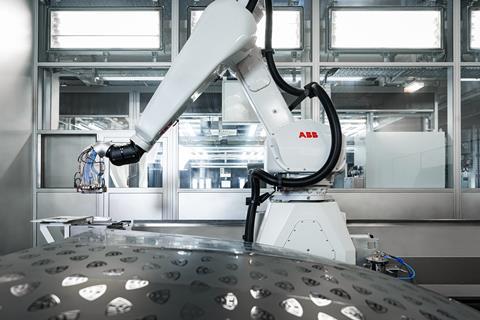
Another advantage of printing that will appeal to exclusive customers is the ability to print details. It could be a monogram, a traditional coachline or even an image. This exciting new printing technology allows for a new era of vehicle personalisation, one that traditionally was reserved for hand-built vehicles or aftermarket suppliers and which now can be achieved on an automated production line.
The vast range of personalisation options that PixelPaint provides made it the ideal choice for Mahindra & Mahindra. The automaker is the first in India to use this exciting technology and has implemented it in its new electric vehicle paint facility where it will be used for the painting of contrasting roofs and pillars on its vehicles.
“This ease of implementation is another key element of the PixelPaint technology,” adds Reger. “Existing equipment can be upgraded to it and it radically changes what has traditionally constituted a paintshop environment. Not only does it eliminate the need for water and filtration systems, the complete lack of overspray means that it is possible to switch from a traditional paintshop booth to one that is made up of cells. This significantly reduces not just capex costs, but maintenance costs too and at the same time enables greater production line flexibility.”
As well as revolutionising the way existing paintshops operate, ongoing development means that it this cutting-edge new technology will deliver even more innovation in the future. The potential for yet more individualisation, the ability to print metallic paints and an increase in the number of jobs per hour it can manage, are all planned for the coming years.
![]()
Many of these solutions are being developed in a simulation environment, one that also has enormous benefits for automakers today. ABB Robotics recently invested in Engineering Software Steyr (ESS), which specialises in paintshop simulation. This new partnership not only enhances further development of the PixelPaint technology, but it also eliminates the need for prototyping and has the potential to further reduce paintshop costs by up to 30%. ESS’s simulation technology will soon be integrated into ABB’s RobotStudio, its offline programming and simulation tool for robotic applications, to further enhance efficiency through the digital management of paintshop operations.
For years the paintshop has been a notoriously expensive element of automotive production lines, generating vast amounts of waste. ABB Robotics’ PixelPaint technology is a much-needed revolution that dramatically reduces costs, eliminates waste and contributes significantly to sustainability goals. At the same time it adds new opportunities for paint techniques and individualisation, all of which prints an exciting new future for the paintshop.






























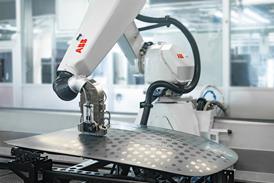
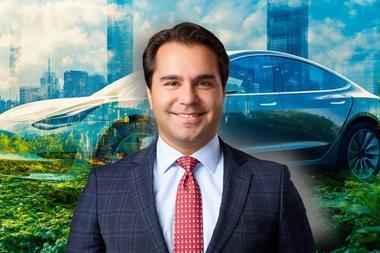
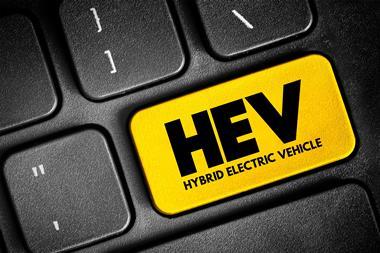
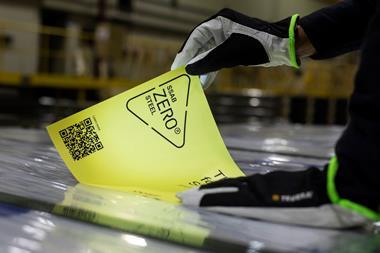

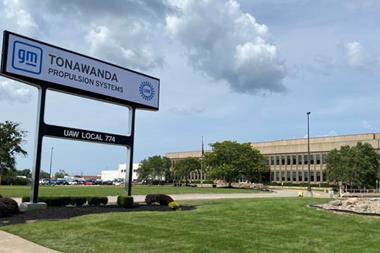



No comments yet